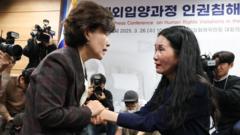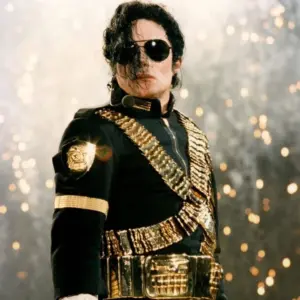An independent commission investigated South Korea's controversial transnational adoption program, uncovering extensive human rights violations affecting over 170,000 children since the 1950s. The report calls for an official apology and systematic reforms in adoption processes to prevent future abuses.
South Korea's Adoption Scandal: Commission Report Reveals Thousands Exposed to Human Rights Violations

South Korea's Adoption Scandal: Commission Report Reveals Thousands Exposed to Human Rights Violations
A recent inquiry highlights the troubling past of South Korea's adoption practices, revealing a system marked by fraud, coercion, and exploitation.
South Korea's Truth and Reconciliation Commission has issued a groundbreaking report detailing the extensive human rights violations committed through its transnational adoption program, which has seen over 170,000 children sent abroad since the 1950s. The findings indicate that a lack of government oversight led to a "mass exportation of children" by private agencies motivated by profit, resulting in numerous fraudulent practices and severe trauma for many adoptees.
During an emotional press briefing, commission chairperson Park Sun-young stated, "This is a shameful part of our history." The inquiry began in 2022 and identified 367 adoptees who alleged unethical practices in their adoption process, focusing specifically on cases from 1964 to 1999. Preliminary results analyzed 100 petitions, recognizing 56 adoptees as victims of serious human rights violations. The ongoing investigation aims to address further allegations before its conclusion in May.
Historically, after the Korean War, South Korea ranked among the world's poorest nations, leading to a surge in adoptions as families were unwilling to care for children. The government then instituted a transnational adoption framework, granting broad powers to private agencies under special adoption laws. Unfortunately, this resulted in substantial oversight failures, as the agencies were pressured by foreign organizations to fulfill demanding quotas for adoptions.
The commission's report uncovered several malpractices, including lack of informed consent from birth mothers and inadequate vetting of adoptive families. Adoption agencies employed dishonest practices like falsifying abandonment claims and misrepresenting children's identities, complicating adoptees' efforts to trace their biological families while leaving them with limited legal protections.
In light of these findings, the commission has urged the government to issue an official apology and comply with international standards regarding transnational adoptions. Recently, South Korea has taken steps toward improving its adoption processes, notably passing legislation that mandates government oversight of all overseas adoptions, set to take effect by July 2023.
Among the individuals affected, Inger-Tone Ueland Shin stands out as a testament to these flawed practices. Adopted illegally by a Norwegian couple at age 13, she later discovered the illegality of her situation yet faced significant challenges in her life in Norway, including alleged abuse. Despite winning a legal battle for damages, she expressed deep dissatisfaction over the lack of accountability for those who adopted her. "I have had a painful and miserable life," she remarked, underlining the profound impact of systemic abuse that many adoptees continue to endure.
"This painful chapter should serve as a reminder as we move forward to ensure that no child has to endure such suffering again," stated Park Sun-young as the investigation proceeds. As international communities watch, South Korea's response could reshape not only its adoption system but also its accountability for historical injustices.



















